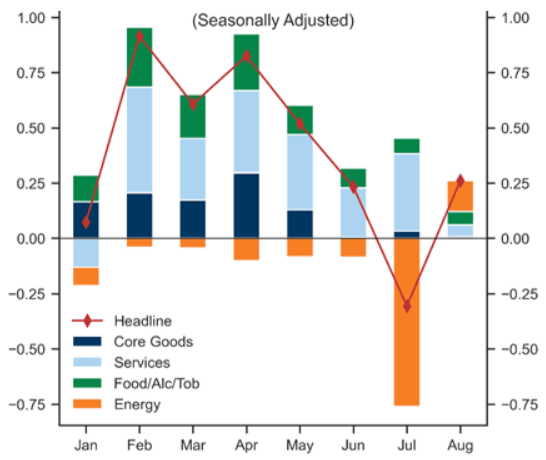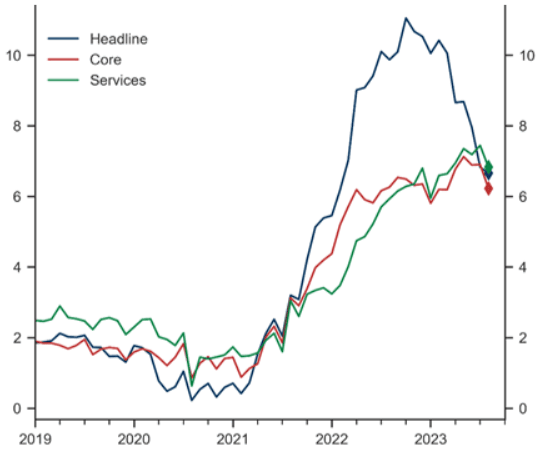UK Inflation Forecasts Cut at Goldman Sachs
- Written by: Gary Howes

Image © Adobe Images
Economists at Goldman Sachs have cut their UK inflation forecasts and say volatile oil prices won't stop the deflationary process that is underway in the UK.
Falling food inflation, another cut to the Ofgem energy price cap and easing supply bottlenecks will all play a part in returning inflation to within touching distance of the Bank of England's 2.0% target in 2024.
The Goldman Sachs call comes amidst fears of a "third wave of inflation" after oil prices spiked following Hamas's terrorist attacks on Israel.
But in a new research note, economist Ibrahim Quadri, says rising oil prices aren't enough to knock the trend of deflation off course thanks to another cut to the Ofgem household energy price cap in the final quarter of 2024.
"The Ofgem price cap is set to decline further in Q4 and expected to remain broadly flat next year, based on the current forward energy curves. Accordingly, we expect sequential energy inflation to pick up but continue to contribute negatively to year-over-year headline inflation through 2024," says Quadri.
Above: Percentage point contribution to month-on-month CPI inflation (seasonally adjusted). Image courtesy of Goldman Sachs.
Fears that the conflict in Israel would result in surging inflation so far appear to be reactionary as oil prices have fallen back from an initial spike witnessed early on Monday.
Brent crude rose 33% in a July-September rally that gave rise to fears that global central banks were facing a fresh inflationary impulse despite embarking on a frantic run of interest rate hikes.
But oil prices have since declined 8.0% from a peak of $95.10 / barrel amidst investor fears a global economic slowdown will sap demand for crude.
Food inflation has meanwhile started to moderate as input costs faced by food producers start to moderate.
Above: UK CPI inflation year-on-year. Image courtesy of Goldman Sachs.
The British Retail Consortium (BRC) said price reductions for dairy, margarine, fish and vegetables and fierce supermarket competition meant food prices dropped in the UK in September, for the first month in almost two years.
"We expect food inflation to slow further going forward," says Quadri.
Goldman Sachs says supply bottlenecks have now eased back to pre-pandemic levels and energy inflation has moderated sharply, meaning core goods inflation has moderated and this slowing is expected to continue going forward.
The outlook for services inflation - which is proving the Bank of England's main headache - remains mixed and analysis from Goldman Sachs suggests that the strength in services inflation over the past year had been driven by a combination of remarkably high wage growth and non-wage cost inflation.
"While we expect non-services inflation to decelerate meaningfully further going forward, the outlook for wage growth remains more uncertain with two-sided risks," says Quadri.
Taken together, Goldman Sachs revises its core inflation forecast "meaningfully" and now expects core inflation at 5.3% year-on-year (vs 5.5% previously) by end-2023 and at 2.8% (vs 3.3% previously) by the end of 2024.
The bank lowers its UK headline inflation projection to 4.3% (vs 4.5% previously) for end-2023 and 2.5% (vs 3.2% previously) for end-2024.





